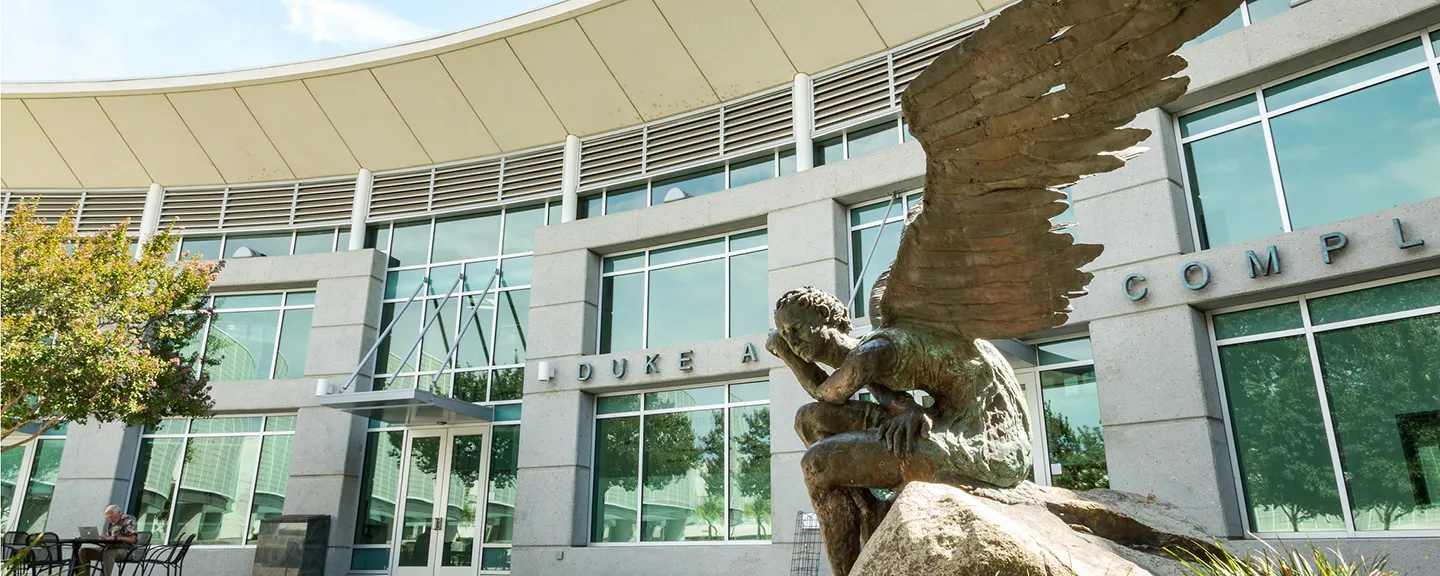- Home
- >
- APU Articles
- >
- News Article
How to Be a Compassionate Neighbor During a Global Health Crisis
March 13, 2020 | Written By Evelyn Allen, M.S. ’19

Those feelings are completely normal, yet we can take a step back and discover that we also have an important role to play during this global health crisis. And, how we react can serve as a direct reflection of our Christian faith. To better understand how we are called to respond in times of crisis, we spoke to Robert R. Duke, PhD, dean of Azusa Pacific University’s School of Theology on being compassionate neighbors amid the Coronavirus threat.
Choose the Path of Faith Over Fear
“Understandably, this situation has the potential to produce fear,” says Duke. “We know that fear can also produce panic, yet panic leads most often to negative results. Instead of yielding to panic, this is instead a time for us to come together and respond collectively and calmly in the face of a fear-producing reality.” Indeed, Scripture is replete with passages like Philippians 4:6 that encourage us to move away from destabilizing fears, anxieties, and worries.
So how can communities unite, if not physically, as compassionate and service-minded neighbors? It begins with acting in spite of our fears for the common good, adopting a posture of faithful service to God and to others. “As a Christian, the commands to love God and love my neighbor are woven together in a way that leaves me with a clear path in times like this: ‘How can I love my neighbors through this?’” says Duke.
Consider New Ways of Serving Others
Serving others in light of the Coronavirus crisis may look and feel quite different, yet Duke noted the power and responsibility we hold with our response. “The lengths to which organizations and people are going to help stem the tide of this pandemic are ultimately about loving one’s neighbors well,” he says. As APU and other institutions move to act quickly in the public interest, there are steps we can take as individuals, also. For example, Duke suggests:
- Following the recommendations of public health experts, such as frequent hand-washing, cleaning frequently-used surfaces regularly, and practicing social distancing. The simple acts of denying our social instincts and being thorough with hygiene and cleanliness might mean we save lives.
- Sharing resources that have grown scarce. If you have access to a wealth of necessary supplies, consider distributing some to those who have fewer or none.
- Giving up activities we were looking forward to, like sporting events or vacation plans. For many of us, the virus is not a likely threat to our health, but for others, it is a serious matter of life or death.
Pray for the Helpers, and Be One, Too
Health experts are leading the way and showing us how to create the best possible outcomes for more people. “Trust the well-trained professionals in the medical community to help us navigate the ways to protect ourselves and others,” says Duke. Take time to pray for those on the front lines of this crisis, as well as those who are playing adjacent roles in managing the virus, including custodial staff, teachers, and caretakers.
“We are being called to a community response on a global scale,” says Duke. “The actions we take now as compassionate neighbors can produce a better environment for entire communities. Together we can get through this and let fear remain at bay, while we care for the least of these in our midst.”